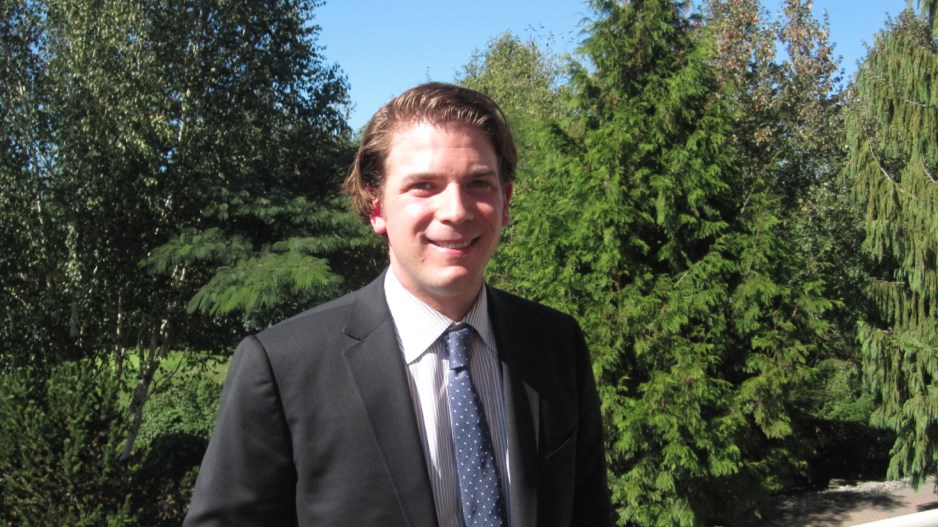Surrey businesses that are exporting products outside Canada need to look further than just south of the border, Surrey Board of Trade members were told last week.
Companies need to look further afield, to places like China and India and reduce their reliance on some of the slower growing nations, TD Securities’ chief macro strategist David Tulk told the lunchtime crowd.
“Look at the United States, that’s cyclically struggling a little bit and is likely to encounter greater structural challenges,” Tulk said in a later interview.
“If you can find opportunities to grow or expose yourself to faster growing economies, that’s really the way forward. And [you need] to be generally aware of where your vulnerabilities lie.
“We’re at a point in the economic cycle where growth is structurally vulnerable to a wide range of economic, financial market, shocks.”
Tulk added that businesses should be prudent, hold liquidity and not take unnecessary risks. But they ultimately have to look outside of the U.S. for growth.
And while some of the near-term risks in Europe have faded, some very important structural challenges remain unresolved, so Europe can’t be relied upon to drive global growth.
Surrey is home to approximately 14,000 businesses, about 1,300 of which are categorized as being medium to large. Many of them have long held the U.S. to be their main market for goods or services.
The U.S. accounts for 74% of Canadian exports, but businesses need to diversify, Steve Mo, district vice-president, TD Commercial Banking in Surrey, said in an interview.
“And it’s not to an area like say Europe … it’s actually in areas like China and India and that’s where we need to focus.”
That’s a decision business leaders need to make themselves, Mo said.
“If you don’t make the change someone else will be making the change and will be your competition so I think people ought to think outside the box,” Mo said.
In some cases a “full scale” reinvention may be required, said Mo.
“[But] if you don’t, what are the consequences? Not necessarily positive, I would say.” •




